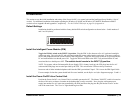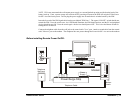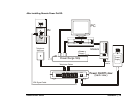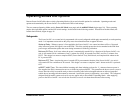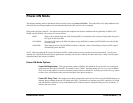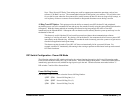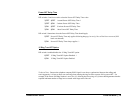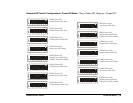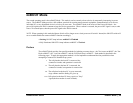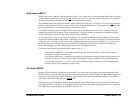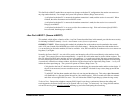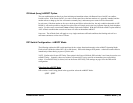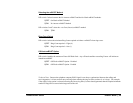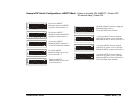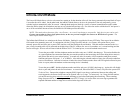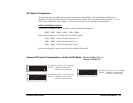
REBOOT Mode
The second operating mode is the REBOOT Mode. This mode is used to remotely reboot a device by temporarily interrupting its power
source. The
REBOOT Mode provides a full coldboot, practical for resetting remote network equipment, communications or fax servers,
individual PCs, or any distributed device in a lock-up or error state. The
REBOOT Mode is the reverse of the Power-ON Mode -- the
power-ON signal to the IPM is constant to keep the devices powered on. When a reboot is executed, the power-OFF signal is sent, a settle
time of 30 seconds lapses, then the power-ON signal to the IPM is restored.
NOTE: When operating in this mode the Master Switch will no longer act as a local power on/off switch! Instead, the ON/OFF switch will
serve to enable/disable the remote
REBOOT function accordingly:
A flashing ON/OFF lamp indicates
REBOOT is Enabled
A fully illuminated ON/OFF is lamp indicates
REBOOT is Disabled.
Preface
The REBOOT Mode provides four possible methods for initiating a remote reboot -- the "No Answer REBOOT", the "On-
Hook
REBOOT", the "Aux Port REBOOT", and the "Off-Hook (busy) REBOOT". Each method is described in the
following pages. To apply the appropriate method, it is first important to understand the four possibilities when
attempting to connect to a distant dial-up system:
• The call placed to the host PC is answered, the
connection is made, and operation is successful.
•• The call placed to the host PC is answered, the
connection is made, but operation is unsuccessful.
••• The call placed to the host PC is never answered;
rings continue until the dialing PC gives up.
•••• Calls placed to the host PC always receive a "busy"
signal (the host modem is stuck off-hook).
Remote Power On/Off REBOOT Mode • 20



